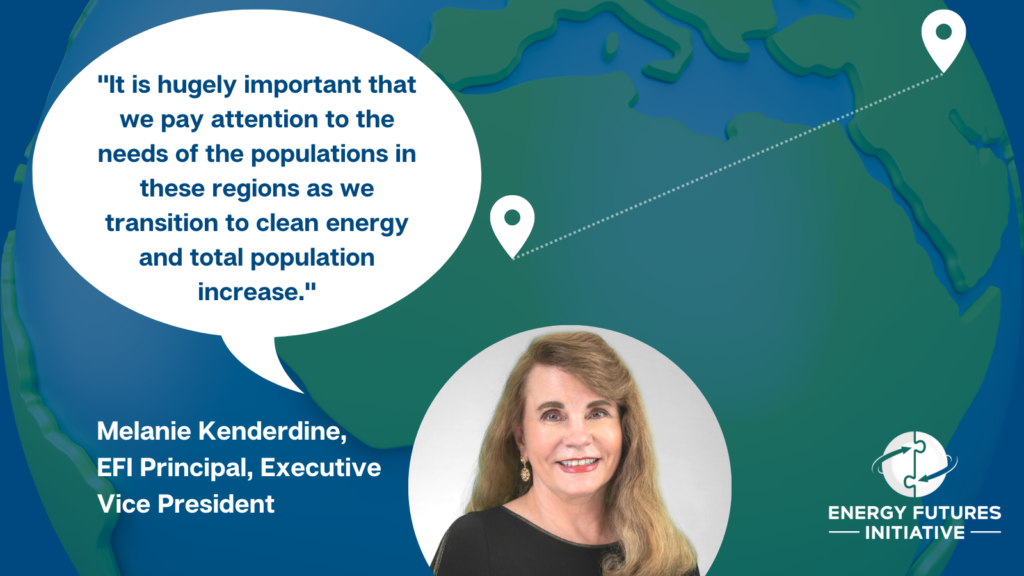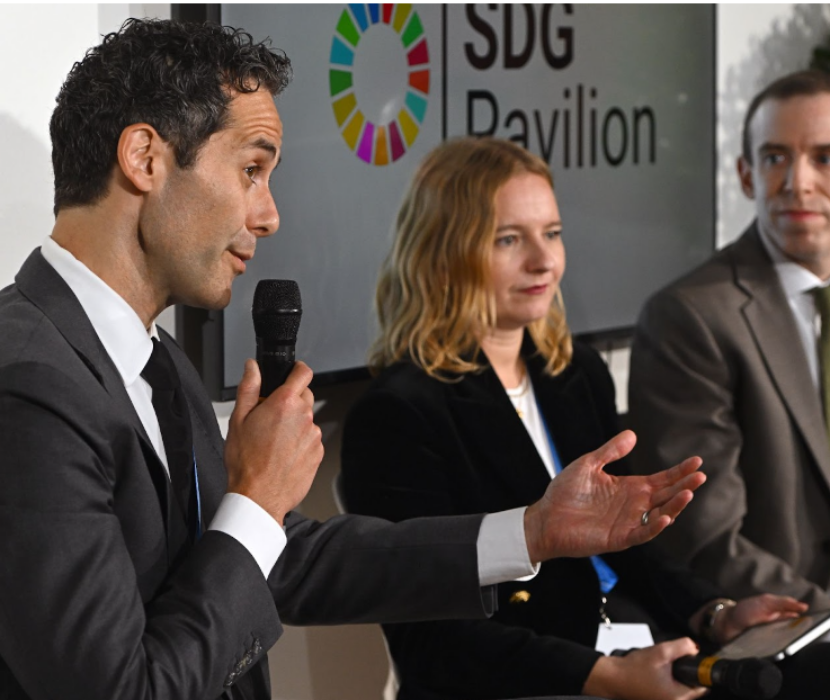
Melanie Kenderdine—Principal and Executive Vice President at the Energy Futures Initiative—spoke at the Middle East Policy Council’s event, “Energy Transition and the Future of Energy in the Middle East,” on January 20, 2023. The event focused on short- and long-term opportunities and challenges related to the clean energy transition for countries in the Middle East and North Africa (MENA) region.
One important short-term opportunity is the 28th Annual Conference of the Parties (COP28), which the United Arab Emirates (UAE) will be hosting in November 2023. Some have criticized the location because the UAE is an oil-producing country and the president of COP28 is the CEO of an oil company. However, Kenderdine argued that the expertise of oil and gas producers is not only welcome, but necessary to maximize opportunities for all countries and stakeholders to be involved in the decision-making process for climate solutions.
“It is not practical to immediately phase out oil and gas…. There will be a lot of regional differences, and we need to figure out how to accommodate those regional differences,” Kenderdine emphasized. “We would be in trouble if the oil-producing and energy-producing countries were not at the table in climate discussions.”
Instead of frowning upon countries in the MENA region for possessing robust oil and gas infrastructure, Kenderdine claimed that people in the climate and energy spaces should support these countries in their efforts to repurpose this infrastructure. She highlighted how the skillsets of oil and gas workers could help develop carbon capture and storage (CCS) and hydrogen technologies, for example.
“The workers have enormous knowledge of the subsurface. So how can you translate that knowledge of the subsurface into something like CCS?” Kenderdine asked. “Oil and gas companies have enormous knowledge of hydrogen and piping. The infrastructure needs pipelines. Shipping and all of those things are skillsets that you would find in conventional oil and gas that would be relevant to crosswalk to hydrogen.”
Kenderdine explained that the MENA region will need to address several long-term challenges before it can successfully produce more clean energy. The region’s population is expected to increase to 660 million by 2050, and most countries will experience around 2 degrees Celsius of warming by then. Kenderdine discussed how with a growing population and more extreme heat, the region’s challenges merit this world’s attention.
“I think that it is hugely important that we pay attention to the needs of the populations in these regions as we transition to clean energy and total population increase,” she said.
Water security and food security are major challenges for energy security and sustainable development in the MENA region. Kenderdine cited a study that found that 43%-50% of the global population, including most people in the MENA region, will be living in water-stressed regions by 2080. Water scarcity could complicate efforts to produce clean energy.
“Conventional nuclear energy consumes large volumes of water and making green hydrogen with water is also a very large water need from an energy perspective,” Kenderdine explained. “In a water scarce region—that will be increasingly water scarce—those two technologies for clean energy could be problematic, absent a lot of desalination.”
Kenderdine also offered thoughts on how the region’s struggle with food scarcity could make it more dependent on fossil fuels.
“Food security is very natural gas intensive. It’s how you make fertilizer,” she said. “Natural gas—and basically the fertilizer that you make from it—is going to be very, very important to [the MENA region’s] food security.”
Another challenge for the energy transition globally—including in the MENA region—is access to critical metals and minerals. These are necessary for forms of renewable energy, such as solar or wind. According to Kenderdine, most countries around the world must currently import metals and minerals from China, decreasing their own energy independence.
“These metals and minerals [are] going to be important for all the countries in the world as we transition to clean energy,” Kenderdine said. “We are 100% import dependent on many of those, and they are critical for our clean energy transition. And China has most of them.”
– Georgia Lyon, Communications Associate
(Share this post with others.)




